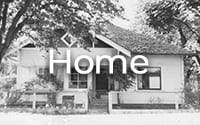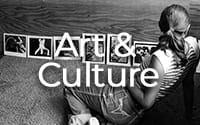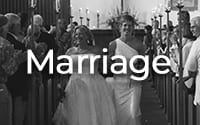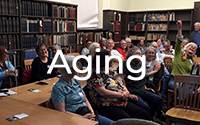PARENTING
PARENTING
Love makes a family. This first generation of “out” lesbians who decided to conceive or adopt children put their community building skills to work by creating lesbian family support groups. The children in Eugene grew up going to school, celebrating holidays, and vacationing together, knowing how cherished they were by their immediate and extended families. Regardless of their own sexual orientations as young adults, most consider themselves to be part of the larger LGBTQ community.

“I always wanted to be a Mom my entire life. I wasn’t sure how that was going to happen.”
– Linda McIntosh –
THE GAYBY BOOM
Before the 1980s, most children of gay and lesbian parents were conceived in heterosexual relationships and when these parents came out and divorced, many lost custody of their children. The courts almost always interpreted “the best interest of the child” as cutting ties with the gay parent, granting custody to the straight parent and sometimes to grandparents. Consequently, much of the early legal advocacy of gay and lesbian rights organizations like The National Center for Lesbian Rights fought for lesbian mothers’ rights to their children.
The 1980s saw the beginning of the “gayby boom,” as lesbian and gay couples intentionally conceived or adopted children. Stories of the earlier tragic losses haunted these new prospective lesbian parents, making most of them cautious and deliberate. Although they were excited to have children and create families, they were also anxious about their perceived and actual vulnerabilities to losing their children. Many lesbians in Eugene chose to become mothers and they describe how their careful planning anticipated and accounted for any fault lines that could undermine their parental status and disrupt their children’s care.
The Eugene lesbians who chose to inseminate either found their own donors or used sperm banks to avoid sharing parental rights with the donors. Many used fertility clinics (despite not having fertility issues) which legally protected their parental status. Those who chose adoption navigated the homophobic biases of both international and domestic adoption agencies. During these years, lesbians could not adopt as couples and had to present themselves as single women (which they legally were) and let the agencies assume that they were heterosexual. Once a baby was born or legally adopted by one mother, many of the partners pursued “second parent adoption” so they would be legal parents as well. Oregon was one of the first states to provide legal parental status for same-sex partners, but it was expensive and intrusive and dependent on the sitting county judge. Because Oregon was one of the last states to legalize same-sex marriage, the legal ties between these parents were through their children.


Since biology and marriage were not the currency of their family relationships, the lesbian mothers naturally drew on their communal experiences and created extended lesbian families. Many of the lesbians who didn’t have children became loving “aunts” to these children and important support for the mothers. The mothers created active lesbian and gay parenting groups and raised their children in communities of two-mom and (a few) two-dad families. In Eugene there were two successive groups, LMNOP (Lesbian Moms ‘n’ Other People) and Rainbow Rascals, each including dozens of children who grew up celebrating holidays, camping, and doing service work together as they grew older. Navigating the straight worlds of their children’s lives, the mothers attentively advocated for them in schools, on sports fields, in doctor’s offices, or wherever people misunderstood or dishonored their families. The children of the narrators are all in their twenties and thirties now, and many are still close friends.
The narrators’ commitment to creating and nurturing “out” gay and lesbian families helped change the legal narrative about “the best interest of the child.” In fact, Supreme Court Justice Anthony Kennedy’s majority opinion legalizing same-sex marriage states that it is in the “children’s best interest” to be raised in lesbian and gay families that are respected and legally protected.
GALLERY
FOR TEACHING AND RESEARCH
Ideas
Visit the Eugene Lesbian Oral History project archive to read about Lynne Lucas’ adoption experience.




















